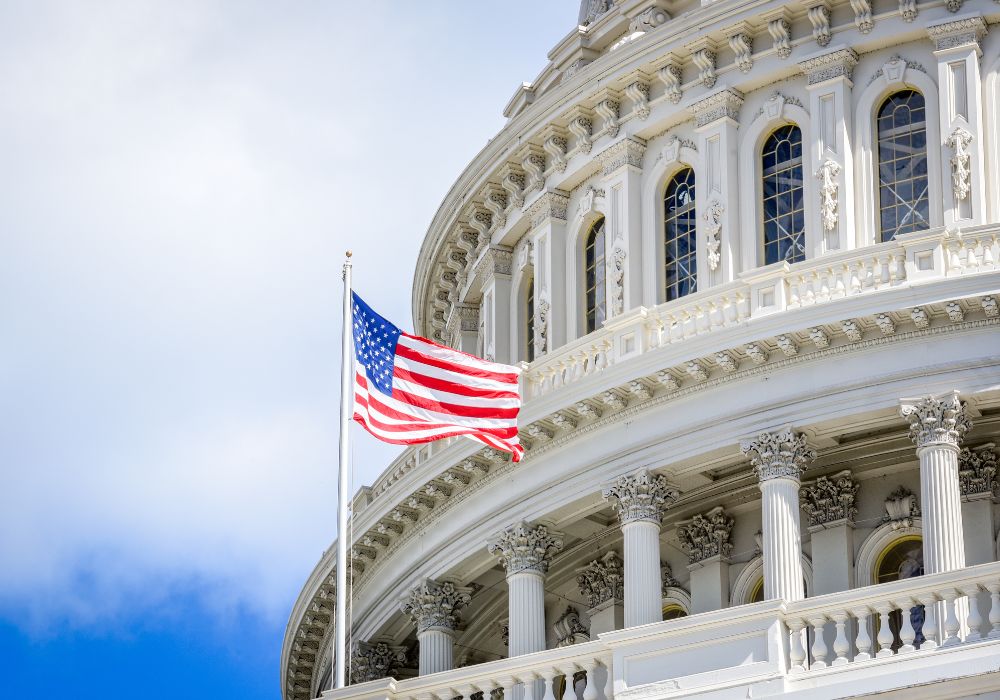
Washington, D.C., September 16, 2025 — Michael Saylor, together with more than a dozen prominent figures in the cryptocurrency sector, met with U.S. lawmakers in Capitol Hill to advance the BITCOIN Act, legislation aimed at creating a Strategic Bitcoin Reserve for the United States. The round table, hosted by Senator Cynthia Lummis (R-Wyoming) and Representative Nick Begich (R-Alaska), brought together industry leaders from companies including MicroStrategy, MARA, Bitdeer, Riot, CleanSpark, among others.
The proposed reserve would task federal agencies, chiefly the U.S. Treasury and others, to acquire one million bitcoins over five years, but only in ways that do not impact the federal budget, i.e., using funds from seized assets, tariff revenues, or other “budget-neutral” sources. Once acquired, the bitcoins would be held (not sold), functioning similarly to a “digital Fort Knox.”
What’s Driving the Initiative
This push comes in the wake of an executive order signed earlier in 2025 by former President Donald Trump, calling for national reserves of bitcoin and other digital assets. That order sought to formalize a Strategic Bitcoin Reserve, combined with a digital asset stockpile, set up through mostly non-taxpayer resources.
Lawmakers and industry backers say the reserve is intended to:
- Safeguard the U.S. economy against inflation and currency devaluation.
- Position the country strategically in the global digital asset race.
- Use existing federal resources (forfeitures, tariffs, etc.) so that no additional burden is placed on the government’s budget.
- Prevent reliance purely on volatile fiat reserves or overexposure to traditional financial risk.
Michael Saylor, a long-time Bitcoin advocate and co-founder of MicroStrategy, has emerged as one of the high-profile industry voices joining this effort. His participation underscores how seriously segments of the crypto community are now pushing for sovereign adoption of Bitcoin, or at least strategic holdings.
How the Law Would Work
Under the terms currently under consideration:
- The U.S. would acquire up to 1 million BTC over a five-year span.
- The acquisition must be “budget-neutral,” meaning it would leverage non-taxpayer funds. Seized assets (from criminal or civil cases) are a key source. Other proposals include allocations from tariff revenues or repurposed liabilities.
- The bitcoins in the reserve would be held permanently (or at least not sold), similar to how gold reserves are treated. This gives the nation a layer of digital asset hedge without treating Bitcoin as a speculative trading asset.
- The bill is still being worked on: it needs legislative passage, changes in federal policy, and buy-in from multiple stakeholders in Congress.
Supporters & Skeptics
Supporters say:
- This could be a forward-looking move to ensure the U.S. isn’t left behind as other countries and sovereigns explore Bitcoin as reserve assets.
- It may provide a real hedge against inflation and dollar debasement.
- Leaders like Saylor argue that using already available seized assets or tariff revenue keeps this from being a “taxpayer burden.”
- The idea also has symbolic importance: having national Bitcoin reserves could alter how Bitcoin is viewed globally, less speculative, more strategic.
Some concerns include:
- Volatility: Bitcoin price swings are huge, and holding large sums exposes the reserve to value declines.
- Legal/regulatory challenges: Congress must approve, and there are questions about whether federal agencies are permitted to hold cryptocurrency under current laws.
- Practical issues: storage security, buffering against hacks, governance of the reserve, how “budget-neutral” mechanisms will actually work.
- Opposition among some economists and lawmakers who remain wary of governments holding volatile digital assets.
Why This Matters to the Crypto World
If Congress passes a law along the lines of the BITCOIN Act (or its equivalents), the implications would be far-reaching:
- Massive demand injection: 1 million BTC is a large chunk of Bitcoin supply. Entry of government demand could shift supply dynamics.
- Regulatory clarity: It would help formalize how governments treat crypto in policy, reserve doctrine, and national finance.
- Institutional legitimacy: Having U.S. government hold Bitcoin could further legitimize crypto for institutional investors.
- Global competitive edge: Nations that get into Bitcoin reserves early can potentially benefit as digital asset economics evolve.
Where Things Stand Now
- The roundtable in Washington on September 16, 2025, is part of ongoing advocacy and legislative work. Michael Saylor and other industry leaders are pressing lawmakers to adopt the BITCOIN Act.
- As per now, the proposal remains just that: a proposal. Key questions about funding, legal design, oversight, and political support remain unresolved.
- Bitcoin’s price environment: recent highs, macroeconomic pressures like inflation, and a potential Fed rate cut, may add urgency to the discussion.
Michael Saylor and his peers are not just promoting Bitcoin as an asset class, they’re pushing for sovereign adoption, for governments to hold Bitcoin in ways analogous to gold or foreign reserves. The U.S. Strategic Bitcoin Reserve proposal is ambitious: acquiring 1 million BTC, preserving it, and doing so under budget without adding cost to taxpayers.
Whether this becomes law depends on political will, regulatory guardrails, and the ability to address legitimate concerns around volatility, security, and governance. But it is now one of the most significant policy pushes in the crypto world, arguably marking a new chapter where Bitcoin is no longer only private speculation, but potential national strategy.
Trade Bitcoin on Hotcoin
Hotcoin Official Site: https://www.hotcoin.com
Hotcoin Twitter: https://x.com/HotcoinGlobal
Hotcoin Telegram: https://t.me/HotcoinEX
Hotcoin Chinese Twitter: https://x.com/hotcoinzh
Hotcoin Chinese Community: https://t.me/hotcoinglobalcn
Hotcoin YouTube: https://www.youtube.com/@hotcoinglobal
